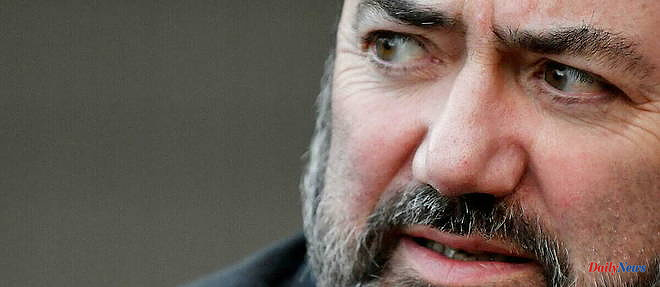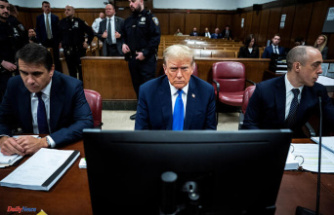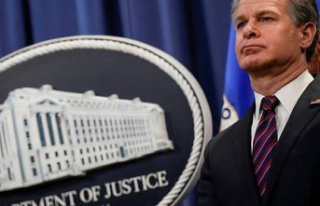It is the failure of give-and-take. The doctors' unions rejected the proposals of the Health Insurance on the revaluation of their consultations, within the framework of the negotiation of the "medical convention" which ended on Tuesday, February 28. Health Minister François Braun "regrets" this decision and says he is "disappointed" by the attitude of the "unresponsible" unions.
The minister's idea was to have a win-win formula. Increase the price of the consultation, okay, but if and only if the doctors accepted more constraints. This was to take the form of a "territorial commitment contract" in which the doctor agreed, for example, to do two calls per month, or to open two Saturdays per month, or to settle in an area medical "under-dense". The public authorities do not understand that 600,000 patients with a long-term condition are currently without a doctor.
The blow is quite severe for the Minister of Health François Braun. The "high mass" of the medical convention, started last November, which must define the tariff rules and the mutual commitments between Health Insurance and doctors ends in a fiasco. "The doctors' unions have not had a responsible attitude. An important opportunity to improve the system is being missed. We had put 1.5 billion euros on the table, it is a huge sum of money, ”explains his entourage.
The former emergency doctor, who often cultivates the metaphor of rugby, which he practices, undergoes tackle after tackle and has managed to alienate all the unions of general practitioners. "The government must stop thinking that liberal doctors are Social Security employees who can be asked anything," insists Jérôme Marty, president of the French Union for Free Medicine (UFML).
The rather moderate Confederation of French Doctors' Unions (CSMF) could have been seduced, but again, it will not. “All the feedback we have from our members suggests that the CSMF will most likely speak out against this agreement. We will decide on March 12, during our general meeting,” warns its president, Luc Duquesnel.
How to explain the failure of this negotiation? Both sides pass the buck. From union sources, we criticize the cacophony of injunctions, held by the public authorities. “Depending on the different interlocutors, the speech varied. At Matignon, we were pressed to sign, threatening us, otherwise, to have a more restrictive legal text on the conditions of installation. At the Élysée, we were criticized for not being present enough in the medical deserts. And at the Ministry of Health, we were given to understand that everything was going to work out. We had had enough of this doublespeak and we preferred to say stop, ”explains one of the negotiators.
On the side of the public authorities, we noted, on the contrary, that the reformist unions were embarrassed at the corners by the emergence of the collective of "doctors for tomorrow", which appeared on social networks in the fall, which demanded a doubling of the consultation, to reduce it from 25 to 50 euros. This complicated the possibility of an agreement on reasonable grounds.
To this was added the tension in the profession of general practitioners. On February 14, nearly 10,000 of them pounded the pavement in Paris, angry at the Rist law which grants new functions to nurses in advanced practice (IPA), hitherto reserved for doctors, such as carrying out certain requirements.
A measure that is in line with concrete solutions, put forward by the government to facilitate access to care, such as the right also given to pharmacists to vaccinate. But a new "red rag" for some doctors.
In the end, the situation seems blocked. “They say no to an annual increase of 20,000 euros per year, in return for a few simple commitments. It's unfortunate, for them, and for the French, "says one in the cabinet of François Braun, where the refusal of liberal doctors goes badly, and is seen as a whim of the wealthy. The medical agreement provided for an increase of 10,000 euros per doctor, without compensation, by raising the price of the classic consultation from 25 to 26.50 euros. To this were added another 10,000 euros, or 20,000 euros in all, if they accepted the conditions of the "territorial engagement contract".
The absence of agreement leads to the appointment of an arbitrator to formulate a new text. This is Annick Morel, member of the High Council for Public Health. The social partners had agreed on her name as soon as the negotiations opened in November 2022. She has three months to meet the parties and write her proposal.
"It will be less favorable than the one we made", suggests the entourage of François Braun, the proposed advances may not be maintained. Too early to say. "The balance of power can change," threatens Jérôme Marty, president of the UFML. The latter relies on the weapon of "deconvention" to weigh in negotiations with the public authorities which seduces certain practitioners, eager to get rid of the shackles of social security.












